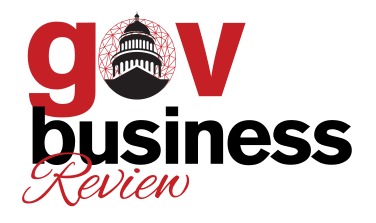Bias influences decisions in ways that often go unnoticed—in split-second judgments, hiring practices, customer service, or the policies that shape communities. Addressing this requires more than awareness; it demands strategies that transform insight into action.
This is precisely what Fair and Impartial Policing (FIP) delivers.
As indicated by the company name, FIP began as a law enforcement initiative but has evolved into the gold standard for implicit bias training for broader audiences, led by a diverse, women-owned team that exemplifies the equity they help organizations cultivate.
Municipal and county bodies, correctional institutions, fire departments, and other government agencies now rely on FIP to help them incorporate fairness and impartiality into their daily work. Instead of treating bias training as just another compliance requirement, FIP makes it effective and usable. Its bias awareness curricula focus on real-world applications and provide practical tools for professionals to use when it matters most.
-6.jpg) FIP’s success is based in how it frames the issue. The goal is not to assign blame but to educate participants on how the brain processes information. While explicit bias has long been recognized, research into implicit bias has transformed the conversation. Even well-intentioned individuals are susceptible to unconscious mental shortcuts. Education and ongoing awareness are essential for preventing unintended harm and promoting impartial behavior.
FIP’s success is based in how it frames the issue. The goal is not to assign blame but to educate participants on how the brain processes information. While explicit bias has long been recognized, research into implicit bias has transformed the conversation. Even well-intentioned individuals are susceptible to unconscious mental shortcuts. Education and ongoing awareness are essential for preventing unintended harm and promoting impartial behavior.
FIP builds its training around this idea, helping professionals see bias not as a personal flaw but as a human tendency rooted in cognitive science. Whether someone is a police officer responding to a call, a county worker serving a constituent, or a city council person shaping legislation, the pressures and responsibilities of the role can activate biases in different ways and different forms. FIP’s customized programs are designed to reflect those differences.
We focus on educating personnel about their biases and, just as importantly, giving them the tools to manage and reduce them actively
Every training program is designed with industry-specific scenarios and actionable tools, equipping professionals to mitigate bias where it occurs and apply their learning in the critical moments that shape communities and institutions. Responsibilities—and how bias manifests—vary by role. FIP structures its programs into distinct training tiers, with curricula tailored to front-line service providers, first-line supervisors, and mid-level managers and leaders. An audience-specific approach ensures that every participant receives guidance that speaks directly to their day-to-day discretionary decisions.
Participants are guided through four key areas: understanding the science of implicit bias, identifying how bias might affect their day-to-day actions, recognizing its consequences, and developing the skills to promote bias-free decisions and behaviors. While the core principles remain the same, each version is carefully designed to align with the realities of its audience, making the training relevant, engaging and immediately applicable.
“We focus on educating personnel about their biases and, just as importantly, giving them the tools to manage and reduce them actively,” says Lorie A. Fridell, Ph.D., CEO and executive trainer.
Uncompromising Quality and Depth
Many bias training programs prioritize efficiency over substance, distilling complex issues into brief sessions that struggle to drive meaningful change. Some government organizations want abbreviated formats to accommodate demanding schedules, assuming that a short seminar can effectively address deeply ingrained cognitive patterns.
-
Training for front-line service providers will not reach maximum effectiveness unless leaders produce an environment that promotes and supports impartial behavior
Research, however, shows that the effectiveness of implicit bias training depends not just on raising awareness but on fostering behavioral change—a process that requires time, engagement, and reinforcement. Studies comparing trained and untrained groups reveal that those who undergo structured, in-depth training are more aware of bias and its consequences and are motivated to act in a bias-free manner. More significantly, experimental evaluations have documented tangible shifts in behavior, demonstrating that when training is done right, it leads to measurable reductions in biased actions.
This is precisely why FIP rejects superficial approaches in favor of high-quality, immersive learning experiences. Passive methods, such as lectures or pre-recorded presentations, do little to advance bias awareness or reshape decision-making processes. Instead, the organization uses first-rate trainers and prioritizes adult-learning principles, incorporating real-world case studies, scenario-based exercises, and discussions—methods proven to reinforce key concepts and drive lasting change.
-7.jpg) Small classroom sizes ensure that participants can ask questions, share perspectives, and fully absorb the material— turning knowledge into action. Sessions incorporate various interactive elements, including polling, small- and large-group exercises, and scenario-based discussions, creating an engaging learning environment that deepens understanding. FIP has developed on-line curricula for selected audiences, such as the front-line city/county service providers. These programs are engaging and interactive, incorporating animated vignettes, whiteboard presentations, and thought-provoking questions and exercises.
Small classroom sizes ensure that participants can ask questions, share perspectives, and fully absorb the material— turning knowledge into action. Sessions incorporate various interactive elements, including polling, small- and large-group exercises, and scenario-based discussions, creating an engaging learning environment that deepens understanding. FIP has developed on-line curricula for selected audiences, such as the front-line city/county service providers. These programs are engaging and interactive, incorporating animated vignettes, whiteboard presentations, and thought-provoking questions and exercises.
While all levels of personnel within a government agency need the training, FIP places particular emphasis on educating leadership. Dr. Fridell argues that the training for front-line service providers will not reach maximum effectiveness unless leaders produce an environment that promotes and supports impartial behavior.
FIP’s police leadership training, for instance, is the most extensive, lasting a day and a half and often including community leaders. This program delves into key areas such as policy, recruitment, supervision, accountability, measurement, and developing operational practices that minimize the risk of biased policing on the part of line-level personnel. Participants in the training for city and county leaders learn how biases might affect their own decisions, how to supervise to promote impartial behavior, how to design policies and practices to reduce the risk of bias on the part of their employees, and how and why to provide continued messaging of the importance of impartial behavior. True progress requires more than a single training session for agency personnel; it depends on leaders who actively sustain and embed these principles within their organizations.
Overcoming Resistance and Encouraging Engagement
Bias training often encounters skepticism, particularly in professions where individuals feel unfairly judged or misunderstood. Law enforcement officers, for example, may enter training sessions expecting criticism rather than constructive education. Training perceived as accusatory rather than constructive can lead to disengagement and heightened skepticism, undermining the potential for meaningful learning and growth.
FIP presents bias as a universal human tendency rather than an individual moral failing. Participants are not labeled in ways that foster defensiveness. Instead, they are introduced to the science behind cognitive bias, showing how these mental processes develop and can be effectively managed. A shift in framing creates a more open environment for discussion, leading to deeper engagement and a willingness to apply what is learned.
Feedback from past participants highlights the success of this method. Many law enforcement officers who initially resisted training express appreciation for its relevance and practicality, stating that they wished they had received it earlier in their careers. Perceptions that shift within a single session speaks to the strength of FIP’s approach.
Scaling Training for Broad Institutional Change
Delivering high-quality bias training at scale requires a combination of logistical expertise, instructional precision and adaptability. FIP has successfully executed large-scale training initiatives while maintaining the depth and effectiveness of its programs. One of its most notable achievements was its collaboration with the New York Police Department, where over 36,000 officers received in-person training over two years. The scale of this initiative presented logistical challenges, but the police department gave FIP perfect scores, not just for a quality product, but for execution.
Beyond law enforcement, FIP has worked with local governments to administer bias training across entire workforces. The organization’s partnership with the city of Memphis serves as a prime example, where training was provided to employees at all levels—from frontline service providers to executive leadership. A comprehensive approach ensured that bias awareness became embedded in daily operations, policy development, and community engagement efforts. Results included improved interactions with the public, more equitable supervisory practices, and a stronger commitment to fairness at all levels of governance.
Driving the Future of Bias Training
The science of bias is an evolving field shaped by new insights from neuroscience, psychology and behavioral science. FIP stays ahead of these developments by continuously refining its training to ensure it is up to date and as effective as possible. But real change happens when bias awareness becomes integral to an organization’s policies, leadership strategies, and daily decision-making.
To make this shift, FIP collaborates with executives, policymakers and HR leaders to move past surface-level awareness and build long-term strategies. When organizations weave bias awareness into service, hiring practices, performance reviews, and leadership development, they foster real and sustainable change.
FIP was originally developed for the local, state and federal law enforcement communities and became the first organization in the United States to offer this type of training. Over time, by popular demand, its reach has grown to include city and county governments, corrections and probation departments, fire departments, and other public service sectors. Dr. Fridell reports that FIP is currently prioritizing work with local government clients, where the impact of fair and equitable practices can shape entire communities. Biases within local government agencies can be ‘internal,’ affecting interactions among peers or between managers and subordinates. Biases can be ‘external’ affecting service provision to community members. Biased behavior in local governments can reduce effectiveness and efficiency, produce unfair personnel practices and service to residents, lead to loss of trust, and generate complaints and lawsuits.
By bridging the gap between knowledge and action, FIP gives individuals tools to recognize and manage bias in the moments that matter most. Its approach combines evidence-based training, leadership involvement, and deep institutional support to help organizations integrate fairness into everyday operations. When bias awareness becomes part of leadership development, hiring practices, and client service, it moves beyond a compliance initiative to create lasting cultural change.
Real progress requires more than good intentions. It calls for sustained effort, committed leadership, and a shared vision of fairness woven into an organization’s fabric. With FIP as a partner, impartial decision-making becomes a goal and a standard that can be achieved and upheld.
Visit: fipolicing.com
Company : Fair and Impartial Policing
Headquarters :
. ManagementLorie A. Fridell, Ph.D., CEO and Executive Trainer
Thank you for Subscribing to Gov Business Review Weekly Brief




